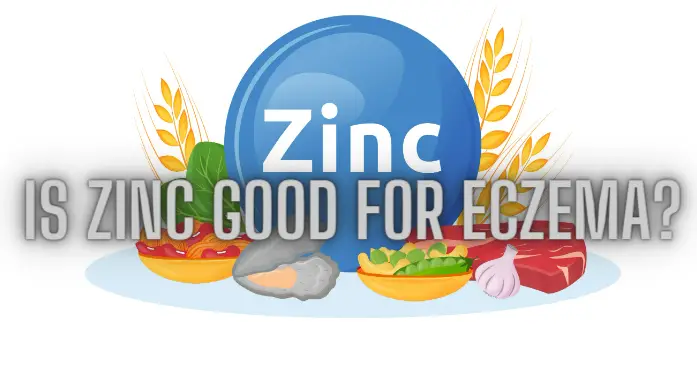Eczema is a skin condition that affects millions of people worldwide. It is characterized by dry, itchy, and inflamed skin, which can be painful and uncomfortable. While there are various treatments available for eczema, one mineral that has gained attention for its potential benefits is zinc. Zinc is an essential mineral that plays a vital role in immune system function and wound healing. This essay will explore the potential benefits of zinc for eczema, including its role in improving symptoms and promoting skin healing.
Is Zinc Good For Eczema?
Zinc is a mineral that is crucial for overall health and well-being. It is involved in many important bodily functions, including immune system function and wound healing. Zinc deficiency can lead to a weakened immune system, delayed wound healing, and other health problems. Studies have shown that zinc supplementation may help improve symptoms of eczema, such as itching and skin lesions.
Research has shown that zinc can help regulate the immune system, which is important for those with eczema. When the immune system is overactive, it can trigger inflammation in the skin, leading to eczema symptoms. Zinc helps regulate the immune system by reducing inflammation and promoting the production of immune cells that help fight infection and disease.
In addition to its immune system benefits, zinc is also essential for wound healing. It helps promote the growth and repair of skin cells, which is important for those with eczema who have damaged or broken skin. Zinc also helps reduce oxidative stress, which can damage skin cells and delay healing. By supplementing with zinc, individuals with eczema may experience faster healing times and improved skin health.
Zinc In Eczema Creams And Ointments
Topical zinc preparations, such as creams and ointments, may also be effective in treating eczema. Zinc oxide, in particular, has been shown to have anti-inflammatory and wound-healing properties, making it a popular ingredient in many eczema creams and ointments. When applied topically, zinc oxide can help reduce inflammation in the skin, which can reduce itching and redness.
Zinc oxide can also promote skin healing by stimulating the production of collagen, which is essential for healthy skin. Collagen helps support the structure of the skin, making it more resilient and less prone to damage. Zinc oxide can also help reduce the risk of infection in eczema-prone skin, as it has natural antimicrobial properties.
Overall, topical zinc preparations can be a safe and effective treatment option for those with eczema. They can help reduce inflammation, promote skin healing, and reduce the risk of infection.
While zinc supplementation and topical preparations can be beneficial for those with eczema, it is important to note that they should not be used as a standalone treatment. Eczema is a complex condition that requires a comprehensive treatment plan, including lifestyle changes, topical treatments, and possibly oral medications.
In addition to zinc, there are many other natural remedies that can be helpful for eczema, such as probiotics, vitamin D, and omega-3 fatty acids. It is important to work with a healthcare provider to develop a personalized treatment plan that takes into account your individual needs and preferences.
Final Thoughts
In conclusion, zinc is a mineral that has the potential to improve symptoms of eczema, such as itching and skin lesions. Zinc supplementation can help regulate the immune system and promote wound healing, while topical zinc preparations can help reduce inflammation and promote skin healing. While zinc can be a helpful addition to a comprehensive eczema treatment plan, it should not be used as a standalone treatment. It is important to work with a healthcare provider to develop a personalized treatment plan that addresses your individual needs and preferences.


